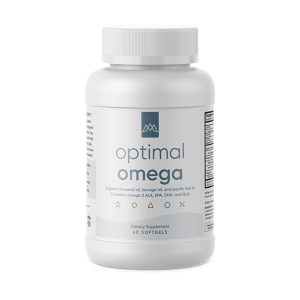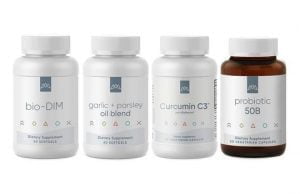Perhaps you have told someone that you have a “strong stomach” to handle watching a horror movie. There is some truth to this. The stomach has to be strong. Among its duties, this J-shaped, muscular organ located beneath the esophagus breaks up food into a liquid mix before it continues into the small intestine.
When the growth of stomach cells becomes abnormal, stomach cancer can result. Around 90 to 95 percent of stomach cancers occur in the stomach’s innermost lining, called the mucosa, where stomach acid and digestive enzymes are made.
Stomach cancer often develops slowly, over many years. Pre-cancerous changes can occur in the mucosa before stomach cancer develops. Over time, cancer can grow from the mucosa into deeper layers of the stomach, advancing the stage of cancer. [1]
Stomach cancer has declined over the past few decades, thanks to preventative measures including better hygiene and nutrition. Even so, stomach cancer is the second most common cause of cancer-related deaths worldwide. [2]
Risk Factors and Symptoms of Stomach Cancer
The early signs of stomach cancer – things like indigestion and stomach discomfort – can be subtle, go undetected, or get mistaken for other conditions.
More advanced symptoms of stomach cancer include:
- Blood in your stool
- Vomiting
- Unexplained weight loss
- Jaundice
- Trouble swallowing [3]
Even then, these symptoms can overlap with other conditions. Some medical conditions can also increase your risk of stomach cancer, such as a Helicobacter pylori infection, which causes stomach inflammation and ulcers.
For any of these concerns, please talk with your healthcare practitioner. He or she may do a physical exam, blood and imaging tests, an endoscopy, and/ or a biopsy to determine your condition.
Be aware of risk factors that increase your risk of stomach cancer, too. These include:
- Most people who develop stomach cancer are in their 60s and 70s.
- You’re more likely to have stomach cancer if it runs in your family.
- Men are twice as likely as women to be diagnosed with stomach cancer.
- African-American men are more than twice as likely to die from stomach cancer compared with Caucasian men.
The good news is that you have control over many risk factors. You have an increased risk of stomach cancer if:
- You eat a lot of salted, smoked, or pickled foods
- You smoke
- You drink too much alcohol
- You’re obese [4]
Reducing the Risk of Stomach Cancer: Start with Your Diet
How you eat dramatically impacts your risk of stomach cancer. Like most diseases, multiple conditions often underlie stomach cancer. Among them include:
- Chronic inflammation increases the risk of developing stomach cancer. [5]
- Gut health. Imbalances in gut microbes – the trillions of living organisms within the gut – may increase the risk of cancer in the stomach and other digestive organs. [6]
- Being overweight. A high body mass index (BMI) can increase the risk of cancer. [7]
The best way to manage these and other conditions is with your diet. Our Core and Advanced Plans contain many foods that can reduce your risk of disease and help you keep a healthy weight.
You can custom-tailor these plans to reduce your risk of stomach cancer with:
- Anti-inflammatory foods. Omega-3 fatty acids can help lower the inflammation that can contribute to various stages of cancer development. [8] Wild-caught seafood is a great way to get those omega-3s. So are flaxseeds, chia seeds, and walnuts. Take Optimal Omega if you’re not regularly eating these foods or want therapeutic amounts of these anti-inflammatory fatty acids.
- Fruits and vegetables. A diet low in nutrients such as vitamins A and C can increase your risk of stomach cancer. Fruits and vegetables are the ideal way to get these and other critical nutrients. They are also high in fiber, which can protect against stomach cancer. (10)
- Cruciferous vegetables. All vegetables are smart choices, but studies show that people who eat more cruciferous vegetables such as broccoli have lower odds of developing stomach cancer. [9]
- Zest up your food and fight cancer. Curcumin, the active ingredient of turmeric, can inhibit the invasion and proliferation of stomach cancer cells. [10]
- Fermented foods. Yogurt, sauerkraut, and other fermented foods contain probiotics that support a healthy gut. Research shows that probiotics may positively impact cancers of the digestive system. [11] Our Yogurt Vegetable Dip is a delicious way to get more gut-supporting probiotics.
5 More Ways to Address Stomach Cancer
Along with the right diet, a few science-supported lifestyle changes can reduce your risk of stomach cancer. These five factors provide the foundation to reduce disease and cultivate vibrant health.
- Move more. Regular physical activity can help reduce your risk of stomach cancer. [12] Any kind of movement counts. Our Max T3 program gives you an effective, full-body workout in your own home… in just 12 minutes!
- Manage stress levels. In one study, stress ranked highest among potential risk factors for stomach cancer. [13] You can’t eliminate the near-constant stress that many of us experience these days, but you can reduce its impact. Here are 16 ways to relieve stress.
- Find your ideal weight. A keto diet is an excellent way to lose weight and maintain your healthy weight.
- Keep your immune system strong. A strong immune system can better recognize and destroy cancer cells. [14] Learn how to support your immune system here.
- Get the right nutrients. When you’re eating and living healthy, a few key nutrients provide critical support to reduce your risk of disease, including stomach cancer. Our Cell Support Bundle contains four unique formulations to strengthen the immune system and help prevent disease:
-
- Bio-DIM. The body breaks down indole-3-carbinol (I3C), found in cruciferous vegetables, into diindolylmethane (DIM). Studies show that DIM can positively impact cancers, including lung cancer. [19] Most people don’t eat enough cruciferous vegetables. Even if you do, getting enough DIM from diet alone can be hard. Bio-DIM contains 100 mg of DIM, uniquely combined with MCT oil, vitamin E, and sunflower lecithin to optimize absorption.
- Garlic + Parsley Oil Blend. This unique formula provides all the health benefits of garlic without consuming several cloves. Garlic + Parsley Oil Blend contains highly bioactive metabolites, allowing the body to receive the many benefits of garlic.
- Curcumin C3. Curcumin C3® complex is an anti-inflammatory and antioxidant formula containing highly absorbable turmeric extract standardized to 95% curcuminoids. BioPerine® black pepper extract, standardized to 95% piperine, enhances the bioavailability and absorption of Curcumin C3®.
- Probiotic 50B. Stimulate healthy gut flora, improve digestion and elimination, and boost immunity, all in just one capsule daily! Probiotic 50B contains a diverse blend of the most highly-researched probiotics delivered in a moisture-resistant capsule featuring delayed-release technology for optimal absorption.
Click here to read more articles on reducing the risk of cancer.
References
[1] https://www.cancer.org/cancer/stomach-cancer/about/what-is-stomach-cancer.html
[2] https://www.ncbi.nlm.nih.gov/pmc/articles/PMC5808709/
[3] https://medlineplus.gov/stomachcancer.html
[4] https://www.cancer.net/cancer-types/stomach-cancer/risk-factors
[5] https://www.sciencedirect.com/science/article/pii/S2352345X17300516
[6] https://www.ncbi.nlm.nih.gov/pmc/articles/PMC4994977/
[7] https://www.ncbi.nlm.nih.gov/books/NBK459142/
[8] https://www.ncbi.nlm.nih.gov/pmc/articles/PMC4189468/
[9] https://pubmed.ncbi.nlm.nih.gov/31094219/
[10] https://pubmed.ncbi.nlm.nih.gov/30725357/
[11] https://www.ncbi.nlm.nih.gov/pmc/articles/PMC6204245/
[12] https://www.cancer.org/cancer/stomach-cancer/causes-risks-prevention/prevention.html
[13] https://www.ncbi.nlm.nih.gov/pmc/articles/PMC2731209/
[14] https://www.cancerresearchuk.org/about-cancer/what-is-cancer/body-systems-and-cancer/the-immune-system-and-cancer



